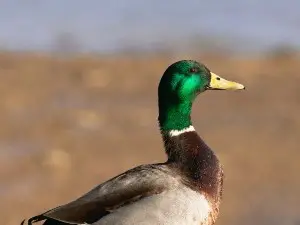
Breathing is a very silent activity, humans and animals breathe without even noticing it. If you start to breathe loudly then this means that something is wrong, the same with your ducks.
This article explores why your duck is breathing loudly and what to do to help your duck in this situation.
Table of Contents
Duck breathing loud:
Loud breathing is not normal for ducks, it draws attention to the birds and usually communicates that something is wrong with the bird.
A duck will usually avoid signs of being ill for a while but if the bird can’t hide signs of being ill, and starts to breathe loudly then there is something definitely wrong with the bird, here are reasons why this may be happening:
Something stuck in its nostrils:
This is the simplest answer to why your bird is breathing loudly.
Ducks breathe through their nostrils, also called their nares, located on their bills. These nares are quite small and can easily be blocked.
Ducks need to regularly dip their heads in water, this helps keep their nares clean and blockade-free, and keeps them breathing regularly.
The birds need bodies of water that are deep enough to dip their head in and blow bubbles to keep dirt, feed, mud, and anything else out of the nares.
If the birds can’t do this then the birds may start breathing loudly because there is a blockage
As long as the bird’s overall behavior isn’t negatively affected by the blockage, apart from the loud breathing, then the bird should be fine as long as the blockage is removed.
What to do:
Take a look at the nostrils from the sides to see if the bird’s nose is indeed blocked by something. If you can’t pretty much see daylight through the nostrils, when you look at one nostril from the side, then the nostril is very likely blocked.
To treat the bird, give it access to a body of warm or lukewarm water where the bird can dip its whole head and blow some bubbles to get the blockage out.
If the bird isn’t interested in dipping its head, then try leaving treats at the bottom of the body of water to get the bird to put its head in.
If this doesn’t work, then you would need to get the blockage out of the birds nares yourself. Do this by soaking a q-tip in some warm water and gently trying to dislodge the item.
Make sure that you are very gentle when you do this as the inside of the bird’s nares are very sensitive
Egg binding:
Egg binding can develop in your duck when it starts laying eggs. If the bird can’t seem to pass an egg, then the bird is said to be egg-bound.
A variety of types of birds can become egg-bound including lovebirds, finches, canaries, cockatiels, chickens, and ducks.
A variety of reasons can cause your bird to become egg bound including obesity, excessive egg laying, a lack of calcium in the bird’s diet, and a physical deformity of the egg to name a few
Signs of egg binding in birds include weakness, a distended abdomen, loud and labored breathing, straining, tail wagging, a fluffed-up appearance, all-white droppings, a decreased appetite, lameness, and tail bobbing
What to do:
Egg binding can be treated at home but it is recommended that you take your bird to the vet for an examination and treatment.
Treatments that the bird may need include a calcium injection, steroids to help with the pain, antibiotics to reduce the chance of an infection, as well as fluids given in the form of an injection.
Aspergillosis:
If your bird is breathing loudly, has open-mouth breathing, and is making loud clicking noises with each breath, then your bird may have aspergillosis.
Aspergillosis is a respiratory disease that birds can get if they inhale mold spores. Mold spores can grow on any damp surface that is left damp. The sores can travel through the environment and your birds can breathe them in.
Immunosuppressed birds are most at risk of catching this disease if they inhale the spores.
The symptoms of this disease come on slowly and gradually and many will miss them until the ailment reaches the advanced stage of this ailment.
Signs of this ailment include loud clicking when breathing, lethargy, weight loss, breathlessness, discharge around the eyes, facial swelling, vomiting, diarrhea, and regurgitation to name a few.
What to do:
It is recommended that you take the bird to the very to be examined and diagnosed.
Treatment options for this disease include antifungal medication as well as supportive care
If you enjoyed this article then you may also be interested in other chicken related articles. Here are some articles that you may be interested in: Duck Breathing Fast, Why Do Ducks Change Colour?, Duck Sneezing Treatment, Duck Bill Colour Change, Duck Breathing Heavy

